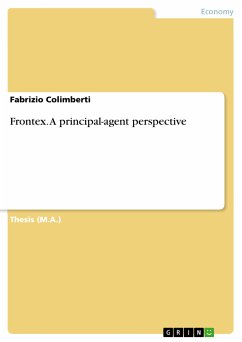Inhaltsangabe:Abstract: Utopia, the ideally perfect state in social and moral aspects, the imaginary island represented by Thomas More in 1516 enjoying the greatest degree of perfection in politics and laws, the perfect society, have we already reached it? Several artists and authors who dealt with the subject of geographical design and functional planning of new municipal constructions have elaborated drafts and ideas about future types of society and urbanity as a Utopia of a technological and highly regulated society. This genre of literature culminated in masterpieces such as Fritz Lang¿s ¿Metropolis¿ (1927), Aldous Huxley¿s ¿Brave New World¿ (1931) and George Orwell¿s ¿Nineteen Eigthy-Four¿ (1949). In their visions the modern city provides a lifestyle full of comfort and convenience: push button factories, flyways that put an end to traffic jams, electronically operated high-speed trains and many other inventions that are a vital part of a goal-oriented urban management to ensure maximal efficiency. However, Fritz Lang as well as Huxley and Orwell show that all the convenience and comfort is a thigh costs. The urban habitat is depressing and in its design not aimed at recreation and personal development but at control of each individual. This culminates in the erosion of any kind of individualism. The life on the assembly line de-individualizes the inhabitants, equalizes and transforms them into machines that mechanically perform their work. Moreover, the people are no longer distinguishable, they wear the same clothes, and finally they are as the machines as which they work for... In this light, as a consequence of industrialization and the quest for maximal efficiency, the trepidation emerges whether we are running into a state of deprivation, oppression, and terror. Are we developing towards a Dystopia, a state in which the condition of life is extremely depressing? This is the starting point for a theory of optimal employment of resources, of banishing waste, a quest in pursuit of excellence, without disregarding the focal point, the individual. In fact, among successful managers there are no two identical strategies, management models or packages of techniques. To desperately cling to systems and self proclaimed panacea definitely is the wrong way as it is to call for an ideal rather than an effective manager. As Fredmund Malik (2000) argues that the key to the achievements of effective managers is not their personality but their way [...]
Dieser Download kann aus rechtlichen Gründen nur mit Rechnungsadresse in A, B, BG, CY, CZ, D, DK, EW, E, FIN, F, GR, HR, H, IRL, I, LT, L, LR, M, NL, PL, P, R, S, SLO, SK ausgeliefert werden.









